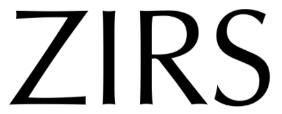http://www.zirs.uni-halle.de/de/veranstaltungen-2020-03-05-programme.php
Jonathan Everts, Katja Müller, Asta Vonderau
Proceedings on the Workshop “Resources and Strukturwandel“
Read more
Globally, the use of resources is facing tremendous challenges. Climate change and global warming demand that we leave CO2-intense fossil fuels in the ground (IPCC 2018). At the same time, the demand for rare-earth elements increases the excavation of resources buried in the ground and makes it economically viable to mine ever vaster territories (Dutta et al. 2018). The same is true for the shale gas industry, which has rapidly grown since 2008, transforming whole communities in the mining areas (Jacquet et al. 2018). In many cases these mined resources become nodal points for economic, political and socio-cultural ties. They account for direct employment in extraction as well as indirect employment for supplier and vendors; they bring about a material and political infrastructure and redefine social networks and regional identities. If such a nodal point dissolves or develops with a medium-term perspective in a particular area, we talk not only of a transition, but of a form of structural change that the German word ‘Strukturwandel’ grasp more adequately than the English expression.
The workshop “Resources and Strukturwandel” will discuss questions not as isolated phenomena occurring at various times and places, but understands the use of resources as a global phenomenon of by now internationally entangled and traded commodities. Introduction or abandonment of those commodities result in locally experienced Strukturwandel. Against the background of historical and other examples, we will debate contemporary cases of socio-politically induced Strukturwandel, focussing on resource use as a nodal point. To understand the complex entanglement of different actors and agendas forcing transition to come about, we will use case studies that help understanding the universalism of Strukturwandel as well as its particularities, taking the involved stakeholders’ different viewpoints of the global – e.g. concepts of global warming and global trade – into account.
While we employ regional studies as a common perspective, we stress the interdisciplinarity of the exchange on the topic, inviting national and international scholars of social anthropology, human geography, history, and law. Bringing these different disciplinary perspectives on the same issue together allows us to investigate the different takes on Strukturwandel and resource use across time, space, and scale. Legal frameworks derex_zirs_termine the social construction of concepts for resources, being negotiated at local, national and global levels. Discussing these dynamics in an interdisciplinary setting will help us understand the conditions of dealing with transitions from or to resource extraction from a broader viewpoint, setting its nodal point character into focus.
The objective of the workshop is twofold. It will be an opportunity to discuss the topic in an interdisciplinary, comparative and synergistic setting, thereby contributing to an academic exchange on a highly relevant topic informed by multiple disciplinary perspectives. It will also be an important step towards a larger research project on resources, structural change, and climate justice that we will submit for funding by the end of 2020.
